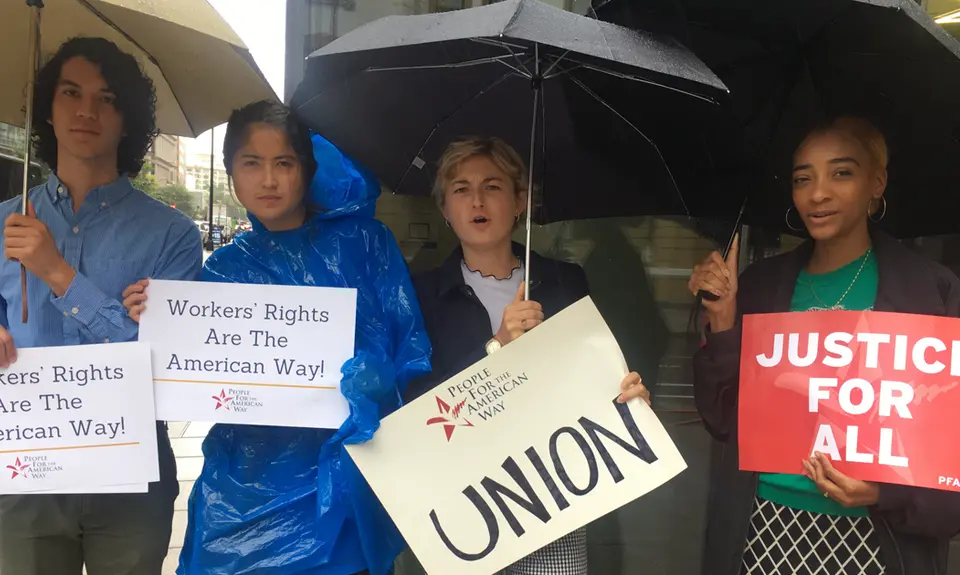“Confirmed Judges, Confirmed Fears” is a blog series documenting the harmful impact of President Trump’s judges on Americans began to ’ rights and liberties. It includes judges nominated in both his first and second terms.
Judge Justin Walker, nominated by Donald Trump to the DC Circuit, cast the deciding vote in a 2-1 order that reversed a lower court and allowed implementation of a Trump executive order to begin that deprives most federal workers of their union rights. Walker joined conservative George HW Bush nominee Karen LeCraft Henderson in the majority, while Biden nominee Michelle Childs strongly dissented in the May 2025 decision in National Treasury Employees Union (NTEU) v Trump.
What has happened in this case?
Under federal law that recognizes federal employees have collective bargaining and related union rights, the President can exclude offices from this protection if their “primary function” is intelligence or national security work. In March, Trump issued an Executive Order that used that rationale to eliminate union rights for around 100,000 workers or “about two-thirds of the federal workforce.”
NTEU filed suit, contending that the order violates the law. DC federal Judge Paul Friedman, nominated by President Clinton, issued a preliminary injunction against the order as the lawsuit continued. The Administration appealed and sought a stay of the preliminary injunction.
How did Walker and Henderson rule and why is the result harmful?
Judges Walker and Henderson issued an unsigned 2-1 order that granted the government’ request and stopped the preliminary injunction from taking effect while the litigation goes forward. They claimed that the Administration is “likely to prevail” and that the union had not shown it was “likely” so suffer “irreparable harm.” This was primarily because the Administration had itself “proposed” the constraint that it would not implement the order while the litigation was underway and before it was resolved.
Judge Michelle Childs, who was nominated by President Biden, strongly dissented. She pointed out that the Administration “glides over” its clear obligation to show irreparable injury by stating briefly that a stay of the injunction would “guarantee” the effective operation of agencies concerning national security. But as she noted, the preliminary injunction “maintains” the status quo “that has existed for half a century” on this issue. And the Administration cannot show that the injunction itself will cause irreparable injury, she wrote, “when the Government itself” has “imposed that same constraint” by directing agencies not to implement the order while the litigation is pending.
As even the majority recognized, without an injunction, any or all of the agencies subject to the order can be required to eliminate union rights for workers at a moment’s notice. The order itself, as well as this possibility, will seriously harm the collective bargaining rights of thousands of federal workers pending the final outcome of the litigation. In addition, the case illustrates the importance of our federal courts to health, welfare and justice and the significance of having fair-minded judges on the federal bench
